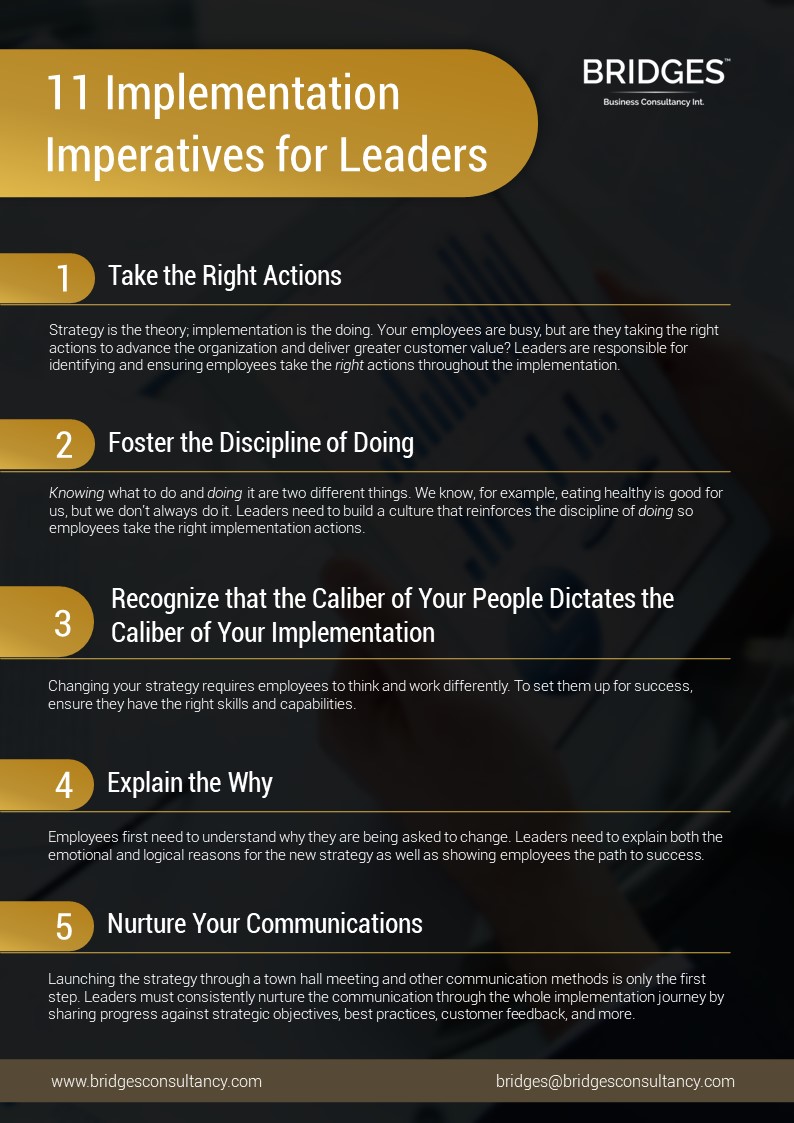Research and White Papers
This section shares our:
1. Implementation research, since 2000
2. Published white papers
Every year leaders invest the time, energy, and capital to implement strategy and have varying degrees of success – with more failing than succeeding.
Since 2000, Bridges has been researching strategy implementation. The catalyst was that when we first looked, we could not find any research in Asia, and very little across the world specific to our field. Our first survey revealed the stunning result that 90% of implementations failed.
Bridges is among the few consultancies in the world to consistently track strategy implementation performance. Our latest research, we conduct it every four years, reveals leaders have improved but once again are finding it even more challenging as they need to implement in a digital world. Our research also leverages 20 years of trends. It’s Bridges’ mantra to “support leaders to succeed in implementing their strategy and our research reveals interesting trends toward accomplishing that.

Previous Strategy Implementation Research
White Papers
As part of our passion in supporting leaders to implement strategy we continually publish our research in white papers.

“Strategy is about making the right choices. Implementation is about taking the right actions.”
“Strategy can be defined as the thinking and implementation as the doing.”
“Leaders are guilty of repeating the same implementation mistakes they have previously made.”
“Knowing and taking the right actions move organizations from strategy creation to strategy implementation.”
“You can outsource the crafting of a strategy but not its implementation.”





